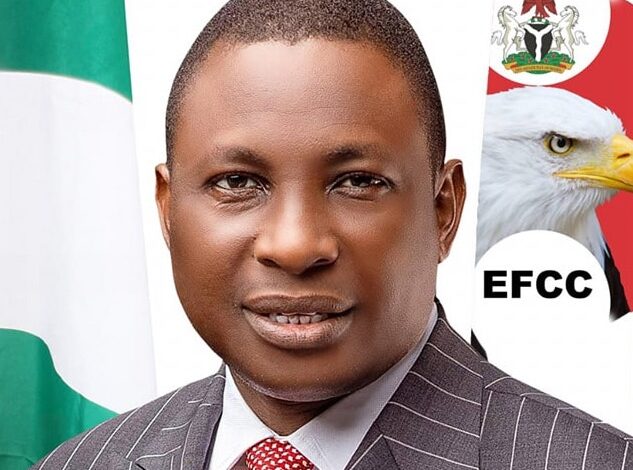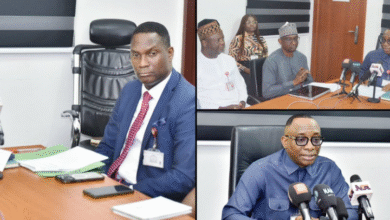Olukoyede highlights compliance failures as a catalyst for corruption in Nigerian MDAs

Abuja, April 29, 2025 – The Executive Chairman of the Economic and Financial Crimes Commission (EFCC), Mr. Ola Olukoyede, expressed deep concerns.
He highlighted the pervasive non-compliance with established regulations within Nigeria’s Ministries, Departments, and Agencies (MDAs).
Consequently, he emphasized that these compliance failures significantly contribute to corruption across the country.

During a meeting at the Commission’s headquarters, Olukoyede addressed a delegation from the National Agency for Science and Engineering Infrastructure (NASENI).
Led by Executive Vice Chairman Khalil Halilu, the delegation discussed vulnerabilities of government and private entities to corruption.
Olukoyede noted that disregard for best practices and regulatory frameworks exacerbates these vulnerabilities.
“The lack of compliance in our MDAs is a major issue,” Olukoyede stated firmly.
He explained that non-compliance in contract awards, management processes, and financial regulations opens the door to corruption.
Breaches in compliance create further opportunities for malpractices, which must be addressed urgently.
He commended NASENI’s leadership for proactively developing a Corruption Risk Assessment (CRA) and Standard Operating Procedure (SOP) with the EFCC.
However, Olukoyede stressed that the effectiveness of these documents relies on NASENI staff’s willingness to adhere to them.
He assured NASENI of continuous support from the EFCC in this endeavor.
“CRA is beneficial, but it will only lead to change if people commit to following due process,” he added. He praised NASENI’s achievements during Halilu’s tenure, recognizing their efforts toward improvement.
Khalil Halilu expressed gratitude for the collaboration between NASENI and the EFCC. He noted that his visit aimed to thank the Commission for its ongoing support. “Upon assuming office, I invited EFCC to review our processes and suggest improvements,” Halilu stated.
The development of NASENI’s CRA and SOP began in 2022 with a joint team of nine EFCC officers and ten NASENI officials. This project culminated in a comprehensive 1900-page SOP document, organized into 45 booklets by late last year.
Halilu lauded this project as a significant milestone for NASENI. “We are grateful to the EFCC for providing nine top experts to evaluate our systems,” he concluded. This collaboration aims to prevent corruption and enhance compliance within Nigerian MDAs
Post Views: 6





